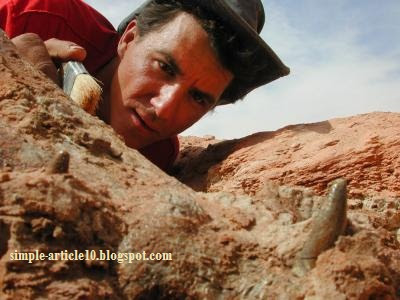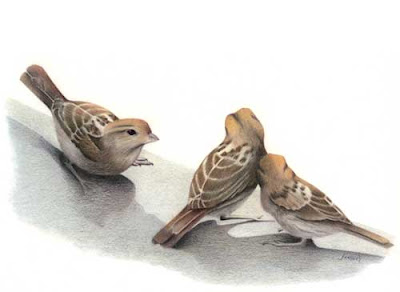Fewer than half of the Finnish 14- to 16-year-olds interviewed in a recent survey eat with their family. The study revealed that in many homes no meals are actually served. Yet, youths yearn for these regular, relaxed moments with their family. When asked what they wanted from their parents, the message was clear: “Warm meals, eating together as a family, and someone who listens and has time for you,” reports the newspaper Helsingin Sanomat. Family meals have an important impact on a youth’s mental health. According to the article, “youths who take part in family meals are usually doing well in school, they seldom smoke, drink, or use drugs, and they are less frequently depressed.”
Wednesday, June 1, 2011
Benefits of Family Meals
Fewer than half of the Finnish 14- to 16-year-olds interviewed in a recent survey eat with their family. The study revealed that in many homes no meals are actually served. Yet, youths yearn for these regular, relaxed moments with their family. When asked what they wanted from their parents, the message was clear: “Warm meals, eating together as a family, and someone who listens and has time for you,” reports the newspaper Helsingin Sanomat. Family meals have an important impact on a youth’s mental health. According to the article, “youths who take part in family meals are usually doing well in school, they seldom smoke, drink, or use drugs, and they are less frequently depressed.”
Tuesday, May 31, 2011
Prehistoric Superglue
Scientists working in KwaZulu-Natal, South Africa, have discovered a superglue dating back thousands of years. “The glue . . . is just as good as the stuff found in hardware stores today,” says The Star, a Johannesburg
newspaper. It is believed that ancient hunters used the glue to attach arrowheads or spear points to their shafts. Scientists’ attempts to replicate the ancient formula—with red ocher, animal fat, acacia gum, and sand—and to get the temperature control just right to dry the adhesive next to a fire, gave the scientists “new respect” for the people who used it.
Wednesday, May 25, 2011
Explosion of Classroom Cheating
In a survey of 20,000 first-year university students in Canada, 73 percent “admitted to committing one or more serious acts of academic dishonesty on written work while in high school,” says the Canadian Council on Learning (CCL). One university reported that cases of cheating and plagiarism increased by 81 percent between the years 2003 and 2006. “Over the past decade,” says Dr. Paul Cappon, president of CCL, “internet and high-tech devices have enabled a virtual explosion of classroom cheating.”
Friday, April 1, 2011
Born to Dance?
“Humans have a unique ability to coordinate their motor movements to an external auditory stimulus, as in music-induced foot tapping or dancing,” says a report published by researchers from the universities of York, England, and Jyva¨ skyla¨ , Finland. The researchers found that even before infants learned to speak, they responded to the rhythm of music and spontaneously tried tomove in time with the beat. The more successful their attempts, the longer they smiled. This suggests that the sense of rhythmand a desire to move with music are not something we pick up but something that comes naturally.
Tuesday, January 25, 2011
The Coffee Dilemma
OVER 1,500,000,000 cups a day! According to a recent estimate, that is how much coffee the world drinks. This vast consumption has persisted despite repeated warnings from scientists over the years that coffee drinkers face a virtual plethora of hazards, ranging from heart disease to diabetes and even various types of cancer. Why is it, then, that so few coffee drinkers have dropped their cups and run from the drink?
Over the past 40 years, scientists have published more than five hundred reports on the effects of coffee drinking. But so far their conclusions have been, well, inconclusive. Why? For one thing, coffee is more complex than it looks. A cup of coffee may contain as many as five hundred naturally occurring chemicals. Yet, most studies focus on just one ingredient, the stimulant caffeine.
Over the past 40 years, scientists have published more than five hundred reports on the effects of coffee drinking. But so far their conclusions have been, well, inconclusive. Why? For one thing, coffee is more complex than it looks. A cup of coffee may contain as many as five hundred naturally occurring chemicals. Yet, most studies focus on just one ingredient, the stimulant caffeine.
Monday, January 24, 2011
The Enigma of Britain’s House Sparrows
The ubiquitous house sparrow, with its familiar chirpings and twitterings, has long been part of the British scene. But it is now disappearing—often suddenly—from urban areas, and nobody knows why. The Independent newspaper of London has offered a £5,000 ($7,200) prize for the first scientific paper from anyone who can solve the mystery. The Royal Society for the Protection of Birds and the British Trust for Ornithology will act as judges. The project is expected to take at least two years to complete.


 8:15 PM
8:15 PM
 Hmm
Hmm
















